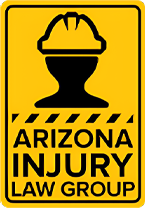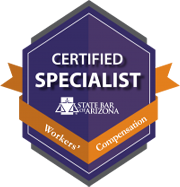Keeping the Workplace Ready to Help with Medical Disasters: When Minutes Count Towards Staying Alive

Many of us would like to eat healthier, do more exercise, quit smoking (a must!), but it is not always possible to maintain a healthy regime because of time constraints and lack of finances. Over time, our bodies wear down and problems can creep up to hit us when least expected.
This post addresses heart attacks and cardiac arrests that can suddenly occur on the job without warning. If a business prepares ahead of time for such events, then saving a life is more probable than waiting for the emergency medical technicians (EMTs) to show up and provide service.
They can provide onsite defibrillator services or cardiopulmonary resuscitation (CPR), depending on the circumstances of the event. If the patient is having a heart attack, other methods are used to help a patient survive.

WHAT ARE THE SYMPTOMS OF A HEART ATTACK?
If a worker exhibits shortness of breath, discomfort in the upper body such as the chest, sweating, or experiences abdominal pain, that person may be having a heart attack. These symptoms indicate that blood flow to the heart is blocked.
Here is the first step to helping that person. Call 911 while sitting by the worker because you need to ask them questions that will be conveyed to the EMTs while on route to the patient. The dispatch service will route the call to the right medical personnel so they can help you.
KEEPING ASPIRIN ON HAND
Ask the patient if they have any allergies or problems with taking aspirin. If unsure of the worker’s age, then ask if they are under 70 years old. Also, ask if they are taking any prescription medicines. If everything checks out and dispatch gives the green light, give the patient one 325 mg aspirin tablet.
The patient can chew it first and swallow with water or it can be crushed on a clean surface (napkin, plate, etc.) and given to the patient that way. Keep the patient calm as possible because the patient’s fear of what’s happening can create worse problems.
THE AED PROGRAM
If a person is not responding, is not breathing, and has no heartbeat, the person is in cardiac arrest and the defibrillator is needed immediately. Call 911 first to get help.
Under Arizona’s AZ Rev Stat § 36-2263(2015), also known as the Good Samaritan law, the following persons or entities are not liable (as Good Samaritans) for using either CPR or the defibrillator when trying to help someone survive.
- Any available physician onsite,
- Any owner or business who acquires a defibrillator,
- Any trainer of use of a defibrillator,
- Any person who uses the defibrillator without compensation, during an emergency, and more.
A business should always have at least one portable defibrillator unit available at the workplace, as well as several trained employees who can provide the service in an emergency. Go here to learn more about the automated external defibrillator (AED) program in Arizona.
CONCLUSION
Always keep yourself as healthy as possible by eating better foods, when possible. If you cannot exercise much, take walks whenever you can, such as walking the dog. If you think you are having a heart attack, call 911 immediately. Never take aspirin for prolonged periods without first talking with your doctor.
If you need help with your workers’ compensation claim, call us at once. We are here to help. 602-346-9009.
Get Help Today
Call Immediately For A Free, No Obligation Consultation And Let Us Help You Put Your Life Back On Track. Let Us Help You
Regain Normalcy And Stability Again. We Want To Help You Get The Benefits You Need And Deserve!


